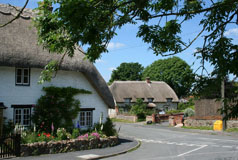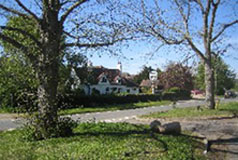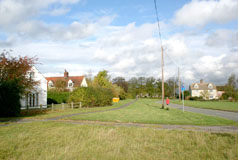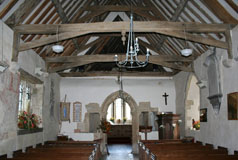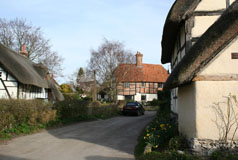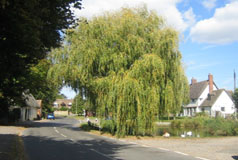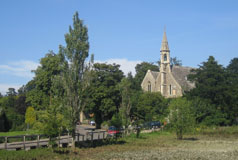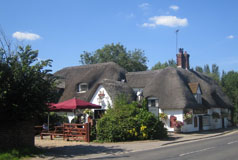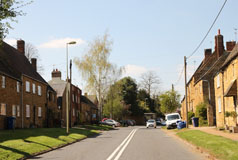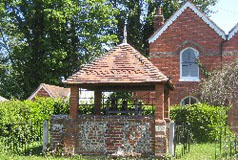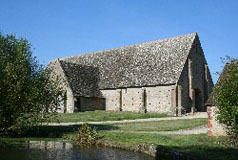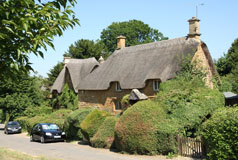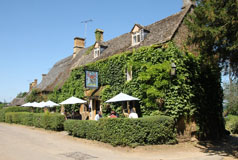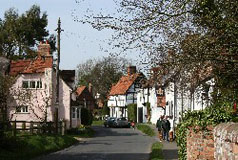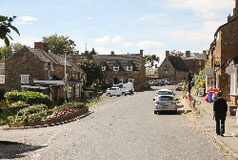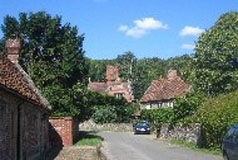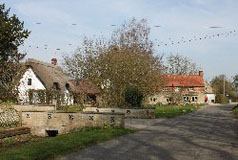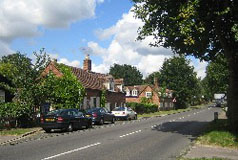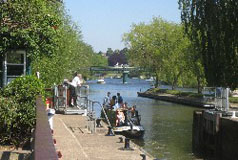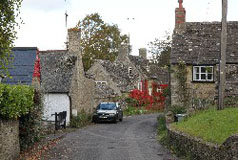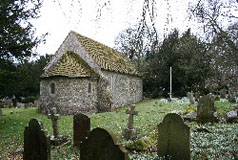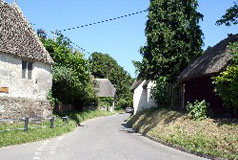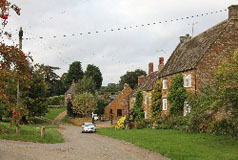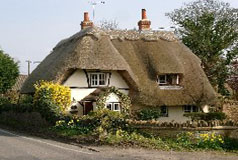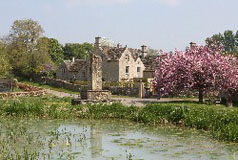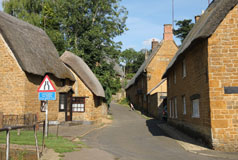SOUTH MORETON
South
Moreton is a pleasant village in the south of the county with an abundance of fine
houses. The name means literally 'south moor village'
and is Saxon in origin. The village was built close to
a causeway which was an important strategic crossing of
the swamp. Close to the church are the low remains of
a Norman motte which was probably built to guard the crossing.
Some say that the motte was an outlying defence of Wallingford
Castle.
The parish church is the Church of St. John the Baptist.
The church was restored in about 1849, although parts
of the church are Saxon and Norman. The inside of the
church is light and airy as there is no stained glass.
Outside the church is a massive yew tree which has been
certified as over 1600 years old. For the history and full information about the Church of St. John the Baptist click here.
At one time there were two mills in the village - one
for the manufacture of paper and the other for corn -
one of which is mentioned in the Domesday Survey of 1086.
The corn mill was also used as a rag store where the rags
were prepared for paper manufacture. They were then sent
to the paper mill in flat-bottomed boats. During the smallpox
epidemic of 1799 the corn mill house was used as a hospital.
Nowadays the remains of only one of these mills are evident.
The only pub in the village is The Crown.
South
Moreton is south of the A4130 Wallingford
to Didcot road.
